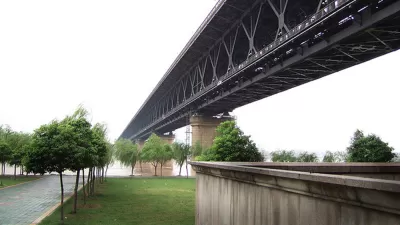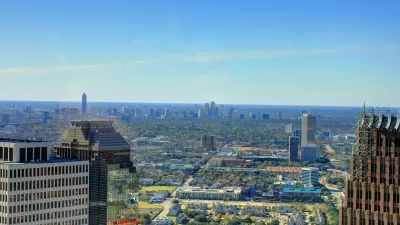Existing grey infrastructure in China cannot cope with rapid urban expansion and frequent droughts and floods. Several cities, with Beijing's approval, are experimenting with rainwater capture methods as an alternative.

Chinese planners and engineers are hard pressed to keep up with demands for working infrastructure. "Experts say that climate change has played a role in the increase of urban flooding, producing more rainfall during shorter periods. Besides that, rapid urbanization has outpaced stormwater removal."
The widespread adoption of rainwater capture techniques may alleviate drought as well as flooding. Enter the so-called 'sponge city.' "The new design aims to build up infrastructure to collect excess rainfall and integrate flood control in urban planning [...] When rain falls lightly, the water either filters down to the underground through permeable pavements or is soaked up by gardens designed to catch rain. Almost no rainwater flows into street gutters [...]"
President Xi Jinping has been quick to back the idea. "Earlier this year, the Chinese central government pledged to provide billions of dollars in financial assistance over the next three years, in an effort to help 16 cities morph into urban sponges."
Although installing rainwater capture infrastructure can be disruptive on the ground, residents reportedly approved of some initial measures when they successfully prevented flooding in their neighborhoods.
FULL STORY: China bets on 'sponge cities' to cope with flooding and drought

Trump Administration Could Effectively End Housing Voucher Program
Federal officials are eyeing major cuts to the Section 8 program that helps millions of low-income households pay rent.

Planetizen Federal Action Tracker
A weekly monitor of how Trump’s orders and actions are impacting planners and planning in America.

Ken Jennings Launches Transit Web Series
The Jeopardy champ wants you to ride public transit.

Rebuilding Smarter: How LA County Is Guiding Fire-Ravaged Communities Toward Resilience
Los Angeles County is leading a coordinated effort to help fire-impacted communities rebuild with resilience by providing recovery resources, promoting fire-wise design, and aligning reconstruction with broader sustainability and climate goals.

When Borders Blur: Regional Collaboration in Action
As regional challenges outgrow city boundaries, “When Borders Blur” explores how cross-jurisdictional collaboration can drive smarter, more resilient urban planning, sharing real-world lessons from thriving partnerships across North America.

Philadelphia Is Expanding its Network of Roundabouts
Roundabouts are widely shown to decrease traffic speed, reduce congestion, and improve efficiency.
Urban Design for Planners 1: Software Tools
This six-course series explores essential urban design concepts using open source software and equips planners with the tools they need to participate fully in the urban design process.
Planning for Universal Design
Learn the tools for implementing Universal Design in planning regulations.
Ada County Highway District
Clanton & Associates, Inc.
Jessamine County Fiscal Court
Institute for Housing and Urban Development Studies (IHS)
City of Grandview
Harvard GSD Executive Education
Toledo-Lucas County Plan Commissions
Salt Lake City
NYU Wagner Graduate School of Public Service





























